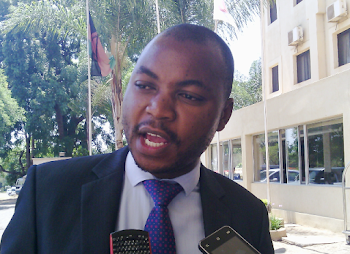 |
| Bonzoe Soko |
Malawi Law Society (MLS) says the country needs to domesticate the Rome Statutes of the International Criminal Court (ICC) in full for the country to be able to arrest and prosecute through local justice system those wanted by the Court for committing atrocities.
The country signed and ratified Rome Statutes of the ICC, however, not all offences that are created under the Rome Statutes have been provided for in the penal code.

Secretary for MLS, Khumbo Bonzoe Soko said at the moment Malawi courts are not competent to execute warrant of arrest and prosecute those wanted by ICC.
Bonzoe Soko said the executive is delaying to domesticate in full provisions of Rome Statutes of the ICC.
He said due to delays, local courts lacks Procedural Law that guides how to execute ICC warrant of arrests as well as process and prosecute cases of international crimes.
“We need the procedural law that can complement efforts of ICC.” Said Bonzoe Soko
“The ICC requires us as signatory to the Statute to make sure that we have that procedural code so that at least when we apprehend those persons we are able to process them through our system. That is why it is very essential that we actually take steps to domesticate the Rome Statutes so that we give the force of the law in Malawi.” Said Soko
“If there was any person in our country who for instance is suspected or accused of having committed genocide elsewhere, our courts will be very much competent to order the arrest and try that person.” He said
Soko also said the ideals for justice and end to impunity for which ICC stands for are ideals that the country shares. He said some of the offences that ICC has jurisdiction over are offences that Malawi already made provision for in its laws and he therefore emphasized that partial domestication of the Rome Statues will continue to frustrate the ICC mandate.
Malawi signed and ratified the Rome Statute of the International Criminal Court (ICC) on 3rd March 1999 and 19th September 2002 respectively. However, Malawi is yet to come up with a domestic legal framework to support the Rome Statute of ICC through domestication of the same in order to enable domestic courts to be able to prosecute serious crimes of international concern as enshrined in the ICC’s statute.













